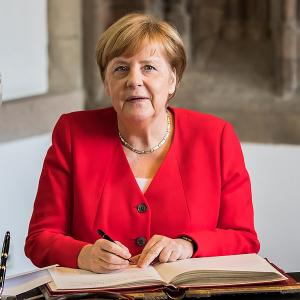German economy suffering from a lack of skilled workers
As the competition of the skilled workforce is dramatically increasing, German Chancellor Angela Merkel applauded the plan to recruit outside the EU as a "paradigm shift" and "It's not only us who are looking at the world's professionals," she added.
New Law - The Skilled Workers Immigration Act
To address the long-time lack of skilled and qualified workers and ease recruitment from non-EU countries, the German government agreed on The Skilled Workers Immigration Act which is a part of Germany's new immigration law and comes into effect on March 1, 2020. According to the German Federal Government estimates the new laws and reduced bureaucracy will attract 25,000 additional skilled workers and specialists.
Joint Declaration To Promote the Recruitment of Skilled Workers
At the "Immigration Summit for Specialists," Chancellor Merkel met with representatives from business organizations and trade unions for discussion of the new Immigration Act. They agreed for a memorandum outlining the effective implementation of the new Immigration Act to reduce the German bureaucracy and ways to attract skills from outside the European Union.
The central points in the memorandum:
- Businesses to offer jobs expressly targeted at foreigners, to assist in finding accommodations and deal with bureaucracy, and to support German Language learning.
- The government to ease and decrease visa processing times and make the whole process more manageable, to alleviate the recognition of foreign credentials and qualifications. To update and give increased focus to the government's information website, "Make it in Germany."
What skills does Germany need?
The skills that are the most in-demand include computer scientists, software developers, IT experts, electrical engineers, mechatronics engineers (a combination of electronics and mechanical engineering), qualified cooks, and of course, the notoriously lacking nurses and elderly care workers.
Germany has been recruiting skills from several countries, including Brazil, India, Mexico, The Philippines, and Vietnam.
German Politicians Praise The New Laws



Interior Minister Horst Seehofer saw the new laws as a "historic juncture point," defining the rules who can enter Germany to work and what the circumstances are.
Economy Minister Peter Altmaier commented that "We could have more economic growth if we had enough skilled workers."
However, immigration is also a bit of a sensitive issue as seen in the last election results; Consequently, Labor Minister Hubertus Heil tried to address the concerns by saying that it "is not about uncontrolled immigration, but about qualified people who we need so that our country can remain economically strong in the future." (Source: Augsburger Allgemeine).
Lack of Skilled workers is a world-wide Phenomenon
Germany is not the only country suffering from a lack of skilled employees. Earlier, we wrote an article about how the future is bright for data scientists. Those predictions seem to hold world-wide and are particularly notable in all areas that are affected by automation and rapid advances technologies.
You may also be interested in the following
Career Outlook: Data and Bioinformatics Scientists (2018-26)
Degree vs. Skills: Impact on salary
Bioinformatics and data science vacancies
